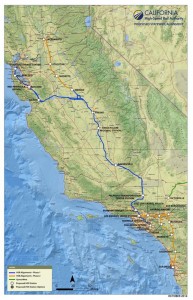
I’m guest hosting Your Call’s Media Roundtable this morning at 10am PT. First, we’ll discuss the media coverage of Kevin McCarthy’s ouster as speaker of the House this week, initiated by eight far-right members of his own party. McCarthy’s 269-day reign as speaker was ended by a 216-210 vote.
How is the media covering the extremists’ power play within the GOP? We’ll hear from:
- Mark Jacob, freelance writer, former metro editor at the Chicago Tribune and Sunday editor at the Chicago Sun-Times, and author of the website Stop the Presses
- John Nichols, national-affairs correspondent for The Nation and the co-author of It’s OK to be Angry About Capitalism
Then we’ll talk about the new session of the Supreme Court, which started Monday. The justices will examine important cases on major issues such as free speech, gun rights, abortion, voting rights, and a case that could threaten the Consumer Financial Protection Bureau and potentially numerous other federal agencies, among others.
Joining us to discuss will be Chris Geidner, award winning legal journalist, author and publisher of the website Law Dork.
Tune in at 91.7 FM in the San Francisco Bay Area or stream live at 10am PT. What comments or questions do you have for our guests? Call 866-798-TALK to join the conversation!
It was only a matter of time. Once Republicans swept the election in November, they were likely to start using federal transportation funds to kill urban transportation projects. Not only do Republicans tend to dislike public funding for any form of non-car-related transportation, but most transit systems are in Democratic urban strongholds, giving Republicans little incentive to spend dollars there.
California’s high speed rail project is apparently the first up in their crosshairs. Even though state voters approved the system in 2008 and have been largely funding it themselves, what little dollars from the federal government to support the system are now in jeopardy.
Case in point: right before this past holiday weekend, congressional Republicans succeeded in getting the new transportation secretary, Elaine Chao, to effectively kill funding for Caltrain electrification.
The Caltrain project actually has little to do with high speed rail, although eventually high speed rail could use the upgraded tracks to serve San Francisco. But in the meantime, electrifying the popular commuter rail between Silicon Valley and San Francisco would decrease travel times and air pollution and increase capacity, providing a huge benefit to the technology breadbasket of the country, while generating jobs from contractors and suppliers around the country.
The federal government under Obama had already agreed in principle to help fund the line with a $647 million transportation grant, with high speed rail funds used to help support the state’s contribution to the project. But then 13 Republican members of congress wrote Chao a letter demanding that the grant be halted until a full audit of the high speed rail system could occur.
Chao complied on Friday, proving that the administration is keen to play politics with transportation dollars and keep them away from urban areas.
Perhaps most galling for Bay Area residents, Congressman Kevin McCarthy, a leading critic of high speed rail from Bakersfield, wrote an op-ed in the San Francisco Chronicle full of hypocrisy:
We should work to unwind the messy and unworkable high-speed rail project, and instead try to direct more funds to modernizing needed transit and infrastructure projects — up and down the valley and the coast, in and out of downtown Los Angeles, and along Bay Area commuter corridors.
Which is of course exactly what the high speed rail money would have done with this project.
Meanwhile, the Bay Area’s business community had tried to lobby McCarthy not to hold up the funds, at a fundraiser on February 9th. As Matier and Ross report in the San Francisco Chronicle:
“He [McCarthy] said he supported electrification of Caltrain, but said the problem was that the $647 million was commingled with high-speed rail money and that the line would be used by high-speed rail,” said Bay Area Council President Jim Wunderman.
As for McCarthy’s argument against high-speed rail?
“Same as it has always been,” Wunderman said. “Too costly. It’s not really high-speed rail.”
The move by the feds won’t kill high speed rail though:
Dan Richard, chairman of the state’s High-Speed Rail Authority, said that if McCarthy and the other 13 California House Republicans were out to kill bullet trains, they picked the wrong target.
“The business plan allows us to stop at San Jose,” Richard said. “If McCarthy is trying to blow us up, Caltrain was collateral damage.”
But the message is clear: until Republicans lose power in Washington DC, California is on its own in funding vital transportation infrastructure like high speed rail.



